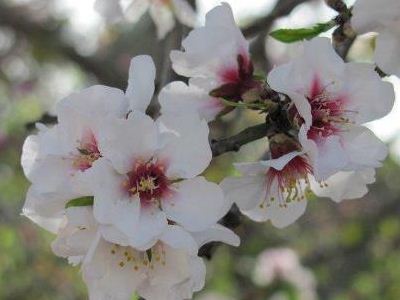Tu B'Shvat: Celebrating Green Israel
-
-
1/25/2013
-
-

 Tu B'Shvat
Tu B'Shvat
|
GovXContentSection
Tu B'shvat (in Hebrew: ט"ו בשבט) is a Jewish holiday, occurring on the 15th day of the Hebrew month of Shvat. This year, Tu B'Shvat is celebrated on the 25 and 26 of January.
Known in Israel as “The New Year for the Trees,” Tu B’Shvat has great significance in the agricultural laws that are relevant in the Land of Israel. Tu B’Shvat is the cut-off date in the Hebrew calendar for calculating the age of a fruit-bearing tree. Each tree is considered to have its “birthday” on Tu B’Shvat.
It is a custom on Tu B’Shvat to eat fruits from the seven species for which the Land of Israel is praised: "...a land of wheat, barley, [grape] vines, fig trees and pomegranates, a land of olive trees and [date] honey" (Deut. 8:8).
Kabbalistic tradition even includes a mystical Tu B’Shvat "seder" service (conceptually similar to the Passover seder), where the inner dimensions of fruits are expounded, along with blessings, songs and deep discussion.
In contemporary Israel, Tu B’Shvat is celebrated as a day of environmental and ecological awareness and trees are planted all around Israel.
Almond trees symbolize Tu B'Shvat in Israel as they blossom throughout Israel during the Holiday.
More information on the religious meanings of Tu B'Shvat:
ABC's of Tu B'Shvat on Aish
-
-
-
-
-
-
-
-
-
-
-
-
-
-
-
-
-
-
-